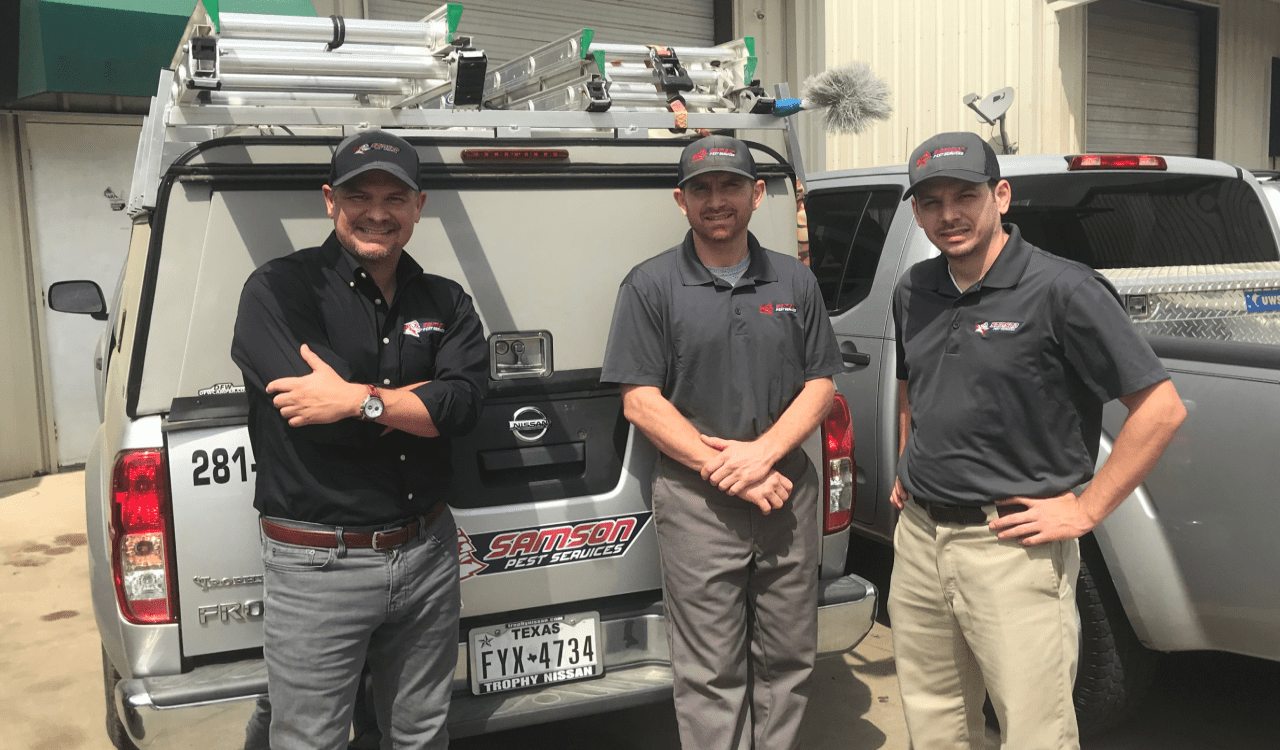Stinging insects in Houston, TX
What You Need To Know About Stinging Insects In Houston, TX
Stinging insects are stressful to deal with, especially if you or someone else living in your home is allergic to them. Below, you can learn about the stinging insects in the Houston area, why they are attracted to your property, and what to do about them.
What are stinging insects?
Wasps and hornets are two common types of stinging insects. Although we refer to them differently, hornets are a type of wasp; however, they have distinguishable features from other wasps, hence the name.
Hornets are around 1 to 2 inches long, whereas other wasps are about 1/4 to 1 inch long. Wasps also have brighter coloring and are less aggressive than hornets.
These stinging insects are predators and are beneficial to people because they help control other pest populations.
Stinging insects are stressful to deal with, especially if you or someone else living in your home is allergic to them. Below, you can learn about the stinging insects in the Houston area, why they are attracted to your property, and what to do about them.

Are stinging insects dangerous?
Most insects won’t attack people “just because,” including stinging insects. However, when dealing with a social insect, meaning they live and work in a group or colony, it is easy to disturb them. If you get too close to their nest, they can feel threatened and attack.
Because wasps and hornets have smooth stingers, they can deliver multiple, painful stings. And some people are allergic to these pests and may experience an adverse reaction as severe as anaphylaxis.
Children and pets are more prone to being stung by these pests because they can easily disturb one of these critters or an entire nest. So you can see why it is essential to get rid of a stinging insect nest right away.
Why do I have a stinging insect problem?
As mentioned above, wasps and hornets are predators, so other insects are the main attractants. One of their primary food sources is aphids, which are insects that eat and damage plants. Aphids also produce honeydew, a sweet liquid that attracts other pests like mosquitoes and fire ants. So if you have a garden on your property, this could be why you also have wasps or hornets.
Where will I find stinging insects?
As with other pests, wasps and hornets look for a safe place to build their nests, which can include:
- Play structures
- In trees
- Under decks
- Eaves and overhangs
- Under rocks
- Inside logs and stumps
- Underground cavities
- Open garbage cans
- Wall voids
- Window frames
Wasps and hornets can build their nests in different nooks and crannies around your property, so if you come across one of their nests, it is best to leave it alone and call an expert for removal.
How do I get rid of stinging insects?
Even if you believe a stinging insect nest is empty, it is best to leave it be and allow a trained professional to assist. Trying to hit, spray, cover, or knock down a wasp or hornet nest can put you and others in danger.
If you live in the Houston area, you can work with Samson Pest and Termite Services for your stinging insect issues. We offer different pest control plans and services that can help keep your property free of stinging insects and other pests, so contact us today to find out more.
How can I prevent stinging insects in the future?
To prevent future problems with wasps and hornets, make your property less attractive to them. You can do this by:
- Keeping gardens away from your home.
- Treating gardens and other plants for aphids.
- Replacing garbage cans with ones that have lids.
- Filling in ground holes.
- Sealing cracks the exterior of your home to prevent pests from getting inside.
- Addressing moisture issues like leaks.
- Removing dead trees, logs, and stumps.
Lastly, work with Samson Pest and Termite Services to remove stinging insect nests and the pests that attract them.

